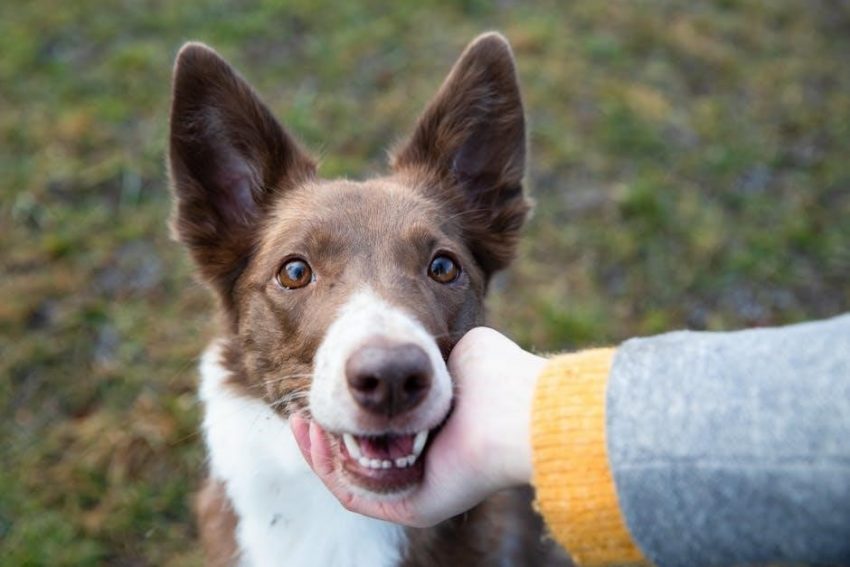A structured puppy training schedule is crucial for establishing routines, covering potty training, feeding times, play sessions, and crate training. Consistency reduces anxiety and prevents accidents, creating a balanced environment for growth and development.
Why a Structured Schedule is Essential for Puppy Development
A structured schedule provides clarity and consistency, helping puppies feel secure and develop good habits. It aids in emotional stability, prevents unwanted behaviors, and ensures physical needs are met. Regular routines for feeding, potty breaks, and playtime foster a balanced environment, promoting healthy growth and making training more effective. Consistency builds trust and reduces anxiety, laying the foundation for a well-adjusted, obedient adult dog.

Potty Training Schedule
A potty training schedule helps puppies learn consistency, reducing accidents. Take them out after meals, naps, and play. Use commands like “go potty” and reward success with treats and praise to encourage good habits and speed up the training process.
Sample Puppy Potty Training Timeline
A sample timeline includes taking your puppy outside immediately after meals, naps, and play. Start with frequent trips every 1-2 hours, gradually increasing intervals as they grow. For example:
– 7:00 AM: Wake up, potty break
– 7:30 AM: Breakfast, then outside
– 12:00 PM: Lunch, followed by potty time
– 5:00 PM: Evening meal, outdoor break
– 8:00 PM: Final potty before bedtime. Consistency and positive reinforcement are key to successful training.
Common Mistakes to Avoid During Potty Training
Common mistakes include inconsistent schedules, insufficient supervision, and not rewarding good behavior. Overlooking signs of needing to go outside can lead to accidents. Punishing mishaps rather than encouraging positive habits can create anxiety. Ignoring age-appropriate expectations, such as a puppy’s limited bladder control, can delay progress. Sticking to a routine and staying patient is essential for successful potty training.
Feeding Schedule
A consistent feeding schedule is vital for puppies, ensuring proper nutrition and preventing overfeeding. Feed 3-4 times daily for puppies under six months, adjusting portions by age, breed, and size. Stick to set times to establish a routine, promoting healthy digestion and avoiding unnecessary weight gain. Consult your vet for personalized recommendations.
Recommended Feeding Times for Puppies
Puppies thrive on a consistent feeding schedule. For puppies under six months, feed 3-4 times daily: 7:00 AM, 12:00 PM, 5:00 PM, and 8:00 PM. Adjust portions based on age, breed, and size. Monitor hunger cues and avoid overfeeding. Stick to high-quality puppy food, and consult your vet for personalized recommendations to ensure optimal growth and development.
The Importance of a Consistent Feeding Routine
A consistent feeding routine helps prevent digestive issues, promotes healthy weight, and establishes a predictable daily structure. Regular mealtimes support energy levels and training focus. Consistency also reduces the risk of overeating or undereating, ensuring your puppy receives the necessary nutrients for growth. Stick to a schedule to foster overall well-being and make training easier, as a contented puppy is more receptive to learning and interaction.
Crate Training Schedule
A crate training schedule helps with potty training, reduces separation anxiety, and prevents destructive behavior. It provides a safe space for your puppy to relax and sleep, ensuring consistency and routine.
How to Introduce Your Puppy to Crate Training
Start by placing treats or toys inside the crate to entice your puppy. Begin with short periods of crate time, such as during meals, and gradually increase the duration. Keep the crate door open at first to build trust. Once comfortable, close the door while you are nearby. Always ensure the crate is a positive, safe space for your puppy to relax and reduce separation anxiety.
Sample Crate Training Routine for Puppies
6:00 AM: Puppy goes out. 6:10-6:30 AM: Free time in one room. 6:30 AM: Food and water in crate. 7:00 AM: Crate door closed. 12:00 PM: Lunch in crate. 1:00 PM: Crate time with a treat. 5:00 PM: Play and potty break. 6:00 PM: Dinner in crate. 7:00 PM: Evening play. 9:00 PM: Bedtime in crate with door closed. Consistency builds trust and calmness.

Playtime and Exercise Schedule
Morning and evening play sessions are essential. Start with short walks and interactive play, gradually increasing duration. Structured playtime enhances physical and mental development in puppies.
Age-Appropriate Play Activities for Puppies
Playtime should match your puppy’s age and energy levels. Younger puppies benefit from short, gentle sessions with soft toys, while older puppies can enjoy fetch, tug-of-war, and interactive games. Incorporate mental stimulation, like puzzle toys, to keep them engaged. Rotate activities to prevent boredom and ensure physical and cognitive development. Structured play helps burn energy and fosters a calm, well-adjusted puppy.
Benefits of Structured Playtime
Structured playtime enhances physical development, burns energy, and reduces anxiety in puppies. It fosters better behavior by channeling energy into productive activities. Play helps strengthen the bond between puppy and owner, promoting trust and communication. Regular, timed sessions prevent overexertion and destructive behavior, ensuring a calm and well-adjusted puppy. Consistent play routines also improve focus and responsiveness to commands, laying a strong foundation for future training and emotional well-being.
Training Sessions
Training sessions are vital for skill development and behavior refinement. Consistency and age-appropriate activities ensure effective learning, while structured routines foster confidence and a stronger bond with the owner.
Types of Training Sessions for Puppies
Puppy training sessions include formal heeling/loose leash walking, sniff and stroll sessions, play-based learning, crate training, socialization exercises, and basic obedience commands. These activities promote physical and mental development, fostering confidence and discipline. Structured sessions ensure a balanced approach to growth, addressing specific needs and fostering a strong bond between puppy and owner. Consistency and age-appropriate activities are key to effective learning and development.
Sample Training Session Plan
A sample training session plan includes morning potty breaks at 7:00 AM, followed by feeding and playtime. Crate training starts at 8:00 AM, with short sessions lasting 2-5 minutes. Afternoon naps and training exercises occur around 1:00 PM. Evening potty breaks and playtime are at 4:00 PM, with bedtime routines beginning at 9:00 PM. This structured plan ensures consistency, promoting effective learning and development for puppies.

Sleep Schedule
A consistent sleep schedule helps puppies feel secure, promoting better rest. Establish a bedtime routine, such as a 9 PM crate time with a calming environment. Ensure the area is quiet and comfortable, aiding in quality sleep essential for growth and development.
Establishing a Bedtime Routine
Creating a calming bedtime routine ensures your puppy sleeps well. Begin with a relaxing activity, like a short walk or gentle play. Avoid intense exercises and stimulation. Dim the lights and maintain a quiet environment. Offer a familiar comfort object, such as a Snuggle Puppy, to ease separation anxiety. Consistency in timing and environment helps signal to your puppy that it’s time to rest, promoting a peaceful night’s sleep for both you and your pet.
Creating a Comfortable Sleep Environment
A cozy sleep space is essential for your puppy’s rest. Use a crate with soft bedding like a plush mat or familiar blanket. Ensure the room is quiet, dark, and at a comfortable temperature. Introduce calming aids, such as a Snuggle Puppy or white noise machine, to reduce anxiety. Place the crate in a central location, fostering a sense of safety and connection. A well-prepared environment promotes better sleep quality and helps your puppy feel secure and relaxed.

Annual Check-Ups and Vet Visits
Regular vet visits are vital for monitoring your puppy’s health, ensuring vaccinations are up-to-date, and addressing any potential issues early. Schedule annual check-ups to maintain their well-being.
Importance of Regular Veterinary Care
Regular veterinary care ensures your puppy receives essential vaccinations, parasite control, and health screenings. These visits help detect potential issues early, preventing severe health problems. A vet can also provide guidance on nutrition, growth, and developmental milestones, ensuring your puppy thrives. Consistent check-ups build a strong foundation for long-term health and well-being, making them a critical part of your puppy training schedule.
Scheduling Vaccinations and Check-Ups
Scheduling vaccinations and check-ups is vital for your puppy’s health. Start with core vaccines at 8 weeks, followed by boosters every 3-4 weeks until 16 weeks. Annual check-ups ensure ongoing health monitoring. A vet-recommended schedule prevents diseases and parasite infestations. Regular visits also allow for early detection of potential issues, ensuring your puppy stays healthy and thrives throughout their development.

Tips for Sticking to the Schedule
Consistency is key to successful puppy training. Use a printable schedule to track progress, set reminders, and stay organized. Adjust as needed to maintain balance and effectiveness.
How to Maintain Consistency
Maintaining consistency in puppy training requires a structured routine and clear communication. Use a printable schedule to track feeding times, potty breaks, and play sessions. Set reminders and involve all family members to ensure reliability. Gradually adjust the routine as your puppy grows, but always prioritize regularity to avoid confusion and setbacks.
Handling Setbacks and Adjustments
Setbacks are inevitable, but staying calm and patient is key. Adjust your schedule gradually as your puppy grows, ensuring routines remain realistic. Monitor progress and be flexible, as every puppy develops at their own pace. Positive reinforcement and consistency will help overcome challenges. Celebrate small milestones to stay motivated and adapt training methods as needed for long-term success.

Common Mistakes and Solutions
Inconsistent schedules and punishment are common mistakes. Stick to routines, reward good behavior, and avoid negative reinforcement for better outcomes and a smoother training process.
Identifying and Correcting Training Errors
Recognizing training errors early is key to successful puppy development. Common mistakes include inconsistent schedules and overfeeding. Correcting these involves resetting routines and using positive reinforcement. Patience and clear communication help puppies adjust. Tracking progress in a puppy training schedule PDF ensures accountability and guides adjustments for better outcomes. Regular reviews of routines prevent stagnation and address emerging issues promptly.
Adjusting the Schedule as Your Puppy Grows
As your puppy grows, their needs evolve, requiring adjustments to their training schedule. Increase exercise duration and variety, and gradually extend potty break intervals. Modify feeding portions and times to suit their size and energy levels. Training sessions can become more complex, introducing new commands and activities. Monitor developmental milestones and adapt routines to prevent boredom and ensure continued progress. Regularly review and update the schedule to align with your puppy’s maturity and capabilities.

